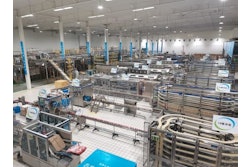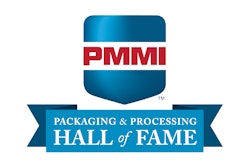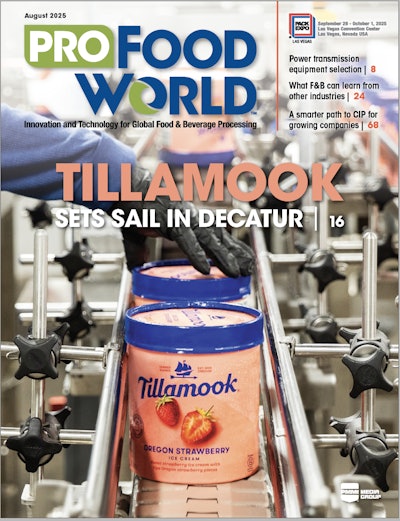There is an untold number of pallet users whose supply chains are suited to white pallets. In the U.S., there are close to 2-billion white pallets in service. They enable the efficient handling, transportation, and storage of goods and commodities. Workhorses that they are, they get damaged, sometimes beyond being fit for their designed purpose. Recycling diverts them away from landfills and incinerators, a valued service in these sustainability-conscious times. In addition to benefits to the environment, white pallet recycling benefits costs and efficiencies. To reap them, however, white pallet recycling should be a component of pallet management.
All pallet recycling involves collecting, sorting, disassembling, and repairing. There are major differences, however, between how they are performed by owners of pallet pools vs. how they are performed by white pallet suppliers. One difference is that pallet pools are national, centralized operations, whereas white pallet recycling is decentralized on a regional or local basis. Another is that recycled pool pallets remain the property of the pool operators, whereas recycled white pallets are resold.
Although recycled whites provide an opportunity for cost savings (vis-à-vis new pallets), it should not be at the sacrifice of consistent quality. Quality should be regarded as application-specific; meaning, the pallet is equal to the conditions imposed upon it. When savings and quality are combined, the result is a pallet that does the job, at the lowest price. Price, on the other hand, is relative to other factors, such as the supplier’s reputation, customer service, etc.
The purchase of recycled white pallets should be governed by policy and procedures. That’s true of the evaluation of pallet suppliers. Those suppliers typically are located close to where white pallets accumulate: areas marked by manufacturing/processing, distribution centers, and other industrial activities. The proximity affords the buyer with the opportunity to evaluate suppliers through facility visits. To make such outings worthwhile, evaluations should be performed on a systematic flow basis.
It starts with the supplier’s sourcing. Within the white pallet recycling industry, clients that buy recycled whites often are sources for the empty pallets (called cores) used for the recycling. An issue for negotiation, therefore, is whether a recycler hauls away the pallets for free or for a fee. Another source of empties is independent salvagers, who collect them and then sell them to the recyclers.
Next comes the sorting, typically performed by size and condition. The recycler should be meticulous regarding defects like split boards, bark, rot, and mold. Unusable components can be repurposed through grinding or chipping, to make sawdust, ground cover, and the like.
Disassembly should be performed under the objective of exacting minimum damage to the components. Pallets, after all, were not assembled to make disassembly easy, but to make them sturdy. Misapplied brute force during disassembly can compromise the fitness of the components for incorporation into recycled pallets.
Repairing is done in accordance with the received condition of the pallet. It can be as simple as replacing deck boards or stringers with like components obtained from other pallets. The result is a recycled pallet in the truest sense. This is the least expensive type since it embodies fewer resources and less time. Sometimes, however, a repaired pallet embodies one or more virgin components, making it a hybrid. It is more expensive than a pallet having all pre-used components, but still less expensive than a new pallet.
Terms-of-delivery are important differentiators among suppliers of recycled white pallets. If pallets have to be assembled per order, there is a waiting period. In contrast, if the supplier maintains an inventory of the requested pallets, they can be delivered sans waiting, and the buyer receives the benefits of just-in-time (JIT).
The preceding discussions underscore the fact that recycled white pallets are not indistinguishable commodities. Even given a specified size, such as 48 in. x 40 in., pallets differ meaningfully. One such distinction is the number of deck boards, determining spacing and gaps, that affect load stability, especially involving corrugated boxes. Another is lumber surfaces, with some being more roughly sawed, meaning more likely to give off splinters, a hazard to the load and to manual handlers. Yet another is lumber species, whether hardwood or soft wood. Hardwood has greater nail-holding capabilities but is more prone to splitting. One more is nail placement, in two regards. First, it should not be so close to an edge as to compromise holding capability or induce splitting. Also, it should not go into a hole from a previous assembly. A final one—although not completing an exhaustive list—is the precision of the cuts. The more automated the process, the more tightly dimensional tolerances can be held.
In next month’s third and last installment, the subject will be the roles played by non-wood pallets.
Sterling Anthony, CPP, is a consultant specializing in marketing, packaging, logistics, and ergonomics. 100 Renaissance Center-Box 176, Detroit, MI 48243; 313-531-1875; [email protected]






















